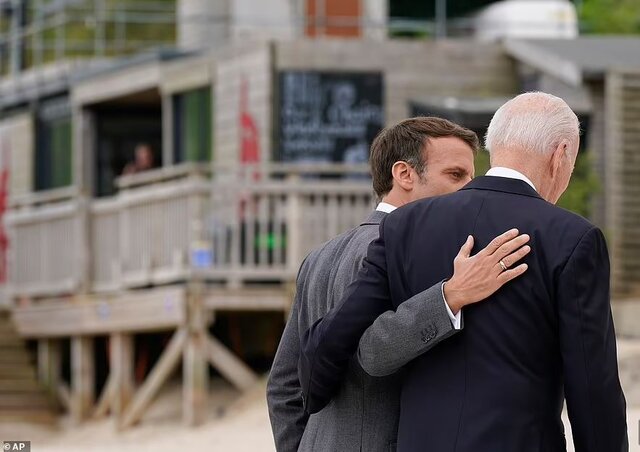Speaking in an interview with the website of the Strategic Council on Foreign Relations, Morteza Makki, referring to the first official visit of the European Parliament delegation to Taiwan in the midst of China’s tensions with Western countries and despite Beijing’s repeated warnings to foreign officials about visiting the island, noted: The European Parliament is an institution that deals more with various issues from the perspective of human rights, and in this case, this European institution has taken the lead so that European governments that have close ties with China will not be criticized and confronted with that country.
Referring to the intensification of the US policy of containment of China and also signing of the AUKUS agreement with an aim of increasing such pressures, he added: Major European countries, such as Germany, France, Spain and Italy with regard to their deep ties with China have announced that they were unwilling to participate in the US policy of Chinophobia; however, some small and medium-sized European countries that are not considered as heavyweights in the Union, in order to cooperate with the United States, are pursuing somehow anti-Chinese policies.
Europe’s cautious measure in line with accompanying the US policy of Chinophobia
The analyst of Europe affairs said: The visit of the European Parliament delegation to Taiwan can be assessed as a very conservative and cautious move in line with accompanying the US policy of Chinophobia, so that there will be no reaction from China. However, China will not ignore this move and will consider political and economic responses.
He referred to the remarks made by the French head of the European Parliament during the visit to Taiwan and his emphasis on the need to prioritize the Taiwan issue in all European countries, and said: China and the European Union have very deep economic ties, especially in the wake of the post-Coronavirus recession dominating over the EU, and they need China more as the engine of economic mobility in the world; therefore, it seems that this trip has more political-propaganda characteristics for the public opinion inside Europe in the current situation.
He said: European politicians are trying to maintain their critical gest towards China so that their social standing would not be undermined, while in the meantime accompanying the US in the Chinophobia policy is important for them.
Taiwan; Achilles heel of China
He continued by referring to the Taiwan Foreign Minister’s visit to Europe and the European Parliament’s non-binding resolution on bilateral investment in Taiwan and said: Taiwan is China’s Achilles heel anyway, and China’s partners and enemies are well aware of this. Taiwan is also trying to make the most of the opportunity that the United States has created around the world.
Europe looking to take concessions from China
Maki stressed: Although Europe’s position towards China is cautious and conservative, where they can take advantage of that country through political propaganda measure, they will definitely take action and consider the current situation as an opportunity for themselves; but on the other hand, China is trying to make the most of the gap between Europe and the United States.
As for the prospects for China-European relations, given the growing tensions over Taiwan, he noted: The international system is moving from a unipolar to a multipolar system, and certainly given such circumstances, the poles of power will try to play a different game to secure their national interests and security. About a year ago, the French president explicitly stated that the United States should not expect Europe to be fully complicit in its policy of Chinophobia.
The expert on Europe affairs said: As a result of the developments that have taken place in the past few months in the relationship between the United States and the European Union, the Europeans have become very distrustful of the United States. They have come to understand that they must move the Union towards independent security-political arrangements, although they are a long way from that; but surely Europe will try to make good use of the multipolar space that is taking shape.
According to Makki; the Europeans do not seem to be willing to pursue a policy of containment of China as strongly as the United States; however, the relationship between China and Europe must be taken into account in this regard. At the same time, the rift between the EU and the United States has led European governments not to put all their eggs in the basket of relations with the United States but to play their role on the international stage in order to restrain the United States and create a balance.
He stressed: It seems unlikely that the Europeans, after going through a difficult economic period like the United States, would pursue a policy of Chinaophobia and go along with it. The Europeans are trying to manage the game with China according to their own interests, and will not suddenly change the type of relations with China; because they too have accepted the fact that China is rapidly becoming the world’s number one economy, and they are not in a position, either militarily or economically, to pursue widespread tensions with China.
The analyst of Europe affairs said: The AUKUS pact between the United States, Britain and Australia clearly showed the Europeans that there are other links between the two sides of the Atlantic Ocean, like the Cold War era, and will not be responsible for their national interests and security on the world arena.










0 Comments